The Gone Sounds of Jazz with Sid Gribetz
An archive of jazz radio programs focused on intensive in-depth looks at great themes from jazz history. Winner of the Jazz Journalist Association Award for Career Excellence, Sid has been broadcasting for over 40 years on WKCR-FM, NYC. He was also voted ’Best Jazz DJ’ by the Village Voice in its 2008 Best Of NY Issue.
Episodes
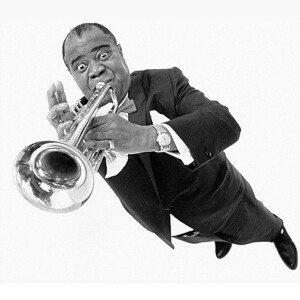
Friday Jul 26, 2024
Louis Armstrong 2
Friday Jul 26, 2024
Friday Jul 26, 2024
Here's my segment from the July 4, 2024 WKCR Louis Armstrong broadcast.
Includes a portion that features Louis in the 1960's, plus other components with many classic recordings for casual listening pleasure.
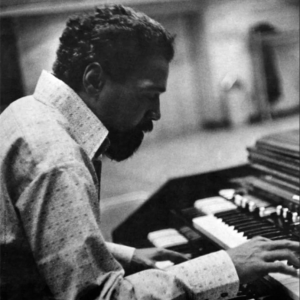
Friday Jul 26, 2024
Don Patterson
Friday Jul 26, 2024
Friday Jul 26, 2024
Don Patterson was one of the unsung heroes of the early generation of jazz organists, following the trail blazing Jimmy Smith.
Born in Columbus Ohio in 1936, Patterson originally played the piano, influenced by Erroll Garner. When the Hammond B-3 organ gained prominence in the mid 1950's, Patterson switched to that instrument.
He worked in an organ-guitar-drums trio with Paul Weeden and Billy James, and he also performed frequently with Sonny Stitt. As the 1960's moved on, Patterson signed with Prestige Records and had a significant impact. His records included associations with many great saxophonists, as well as unencumbered organ dates.
Dogged by various health problems, in later years he laid low for a while, but by the 1980's settled in Philadelphia with a renewed career. Unfortunately, he passed away in 1988 at the age of 51.
He incorporated the abilities to play the Hammond conventions with full throttled soul, but he also maintained a spare pianistic solo style and would play bebop, hard bop and beyond.
This retrospective tribute will feature the oeuvre of his great Hammond B-3 career, and we’ll play many great albums on the Prestige label and include his later works as well..
originally broadcast 2010
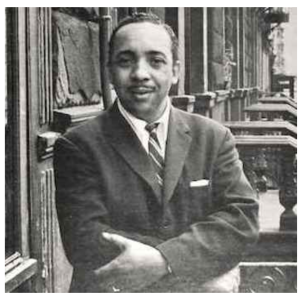
Friday Jul 26, 2024
Red Garland Centennial
Friday Jul 26, 2024
Friday Jul 26, 2024
With his block-chord style, and bright and breezy attitude, Red Garland’s piano was swinging and sensitive at the same time. Whether serving as an accompanist in classic jazz combos, or out front as the leader of a romantic piano trio, Garland left a lasting impact in modern jazz.
WKCR presented a marathon radio tribute to Garland on May 13, 2013 to honor the centennial of his birth.
Here's my three hour segment, which focused on Garland with horns, such as John Coltrane, Arnett Cobb, Coleman Hawkins, Eddie Lockjaw Davis and many more. (But omitting his work with the classic Miles Davis groups)
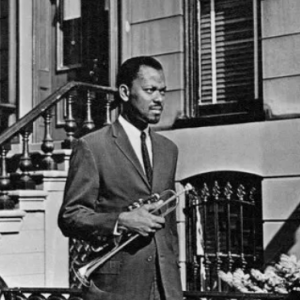
Friday Jul 26, 2024
Richard Williams
Friday Jul 26, 2024
Friday Jul 26, 2024
Trumpeter Richard Williams was active on the New York scene mainly in the 1960's and 70's. A first rate musician, he had the nickname “Notes”. In addition to jazz combos Williams worked steadily in Broadway show pits, classical music ensembles, many big bands, and modernist large ensembles. As such, he participated in many significant musical endeavors over time, but not in the forefront or the limelight.Richard Williams was born on May 4, 1931 in Galveston, Texas. After college, Williams entered the service and spent many years in an Air Force unit that intensified his musical studies. Stationed for a time in San Francisco, he stayed in California and performed in Bay Area clubs. Williams moved to New York City in the late 1950's and resided here the rest of his life. He did graduate studies at the Manhattan School of Music, obtaining a Master’s Degree.Williams made his first jazz records with Charles Mingus in 1959 (“Mingus Dynasty”). For several years he participated in the Mingus workshop groups and with Mingus-mate John Handy, and he appears on some of their classic recordings. Another significant association was as a key member in the working group of Gigi Gryce in the early 1960's. He was also a vital participant in Slide Hampton’s medium-size ensembles, including their notable 1962 European tour and Atlantic records. Other important early credits include colleagues as diverse as Rahsaan Roland Kirk, Leo Wright, Yusef Lateef and Booker Ervin.Surprisingly, Williams made only one record as a leader under his own name – “New Horn In Town” – for Candid Records in 1960. It’s a beauty.Richard Williams was an important musician around town for many dates. A relevant example is his association with the Thad Jones-Mel Lewis (Vanguard) Orchestra in the beginning years of that significant band. In that vein he would also be on call for work as diverse as Tolliver’s Music Inc. to the studio big bands that backed some of Aretha Franklin’s music.Still working in the 1980's, Williams appeared with the Mingus alumni ensembles and the Illinois Jacquet big band.
Richard Williams died of kidney disease in 1985 at the age of 54.While you may not know his name, you can see that we’ll have plenty of interesting records to play during this three hour long retrospective tribute.
originally broadcast December 15, 2019
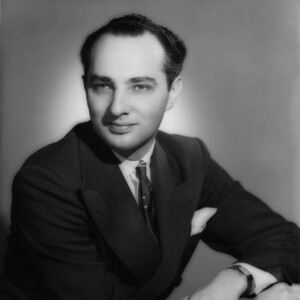
Monday Jul 08, 2024
Arthur Schwartz
Monday Jul 08, 2024
Monday Jul 08, 2024
This is one of a series of Profiles we’ve done over the years focusing on the jazz impact of a legendary composer from the Great American Songbook.Our enduring “standards” are part of the sinew of jazz performance, as their musical forms, melodies, and harmonic structure provide a sturdy and meaningful basis for jazz improvisation and expression. These songs have become lasting touchstones in our jazz repertory.Arthur Schwartz was born in 1900 in Brooklyn. His father was an attorney who encouraged him to enter the law. After studies at Boys High, and in Literature and Law at Columbia and New York Universities, he worked as an English teacher and then was admitted to the bar and practiced law in New York City. However, Schwartz was always interested in music and songwriting, which he did as a hobby. He was a friend of Lorenz Hart, who encouraged him. By 1929, Schwartz eschewed the law business and gave up his practice, turning to music full time.Schwartz teamed up with lyricist Howard Dietz and this initial endeavor proved successful, as they composed pieces for Broadway revues and eventually full “book musicals” throughout the 1930's. Leaving his partnership with Dietz, Schwartz worked with other notable lyricists and composed songs for movie scores as well as Broadway shows. Among his famous compositions are “I Guess I’ll Have To Change My Plan”, “That’s Entertainment, “Alone Together”, “Dancing In The Dark”, “You and The Night And The Music”, “By Myself”, “Rhode Island Is Famous For You”, and many more nuggets. His songs often featured a wistful and melancholic sensitivity, but they also were informed by a melodious sophistication and joyous lyricism.As an interesting footnote, Arthur Schwartz is the father of radio personality and music historian Jonathan Schwartz.Our program will discuss Schwartz’s career, and then take a “deep dive” into the jazz versions of these songs. We’ll play recordings by Miles Davis, Charlie Parker, Lester Young, John Coltrane, and less famous jazz masters, too, that will give you great insight into Schwartz’s music.
originally broadcast August 21, 2022
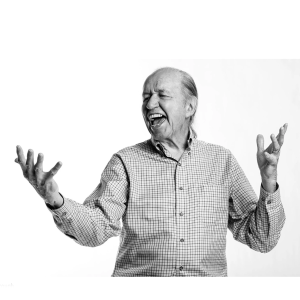
Monday Jul 08, 2024
Bob Dorough
Monday Jul 08, 2024
Monday Jul 08, 2024
Bob Dorough encompasses a wide arc of American music. He is rooted in the Americana of a Hoagy Carmichael or Johnny Mercer, energized under the counter-cultural fervor and swell of the bebop jazz revolution, a witty and literate songwriter of sophisticated pieces, a cultural icon of children’s songs, and a vivid interpreter of the American popular songbook with a unique personal vision. We will explore all aspects of his career during the program. Bob Dorough was born in Arkansas on December 12, 1923 and raised in rural areas across Arkansas and Texas. He received formal musical education in Plainview Texas High School; drafted into the Army during World War II, he served with a special services musical unit, and after the war studied in the renowned music program at North Texas State University. Upon graduating in 1949, Bob moved to New York City and a cold water East Side flat to immerse himself in the modern jazz scene. At one point he was hired by boxer Sugar Ray Robinson to play music for his rhythm in training, and Robinson then enlisted Bob for his dance review, which brought him to Paris. While in Paris, Bob teamed with Blossom Dearie and the Blue Stars of France vocalists. Back in the States, Bob recorded his first album for Bethlehem in 1956, “Devil May Care”, which has become a vocalese classic. The itinerant hipster, Bob was in California in the late ‘50's, with beatniks and Lenny Bruce and great California cool musicians; next with Fran Landesman and Tommy Wolf in St. Louis; back in New York solicited by Miles Davis to write and record vocals, including the sardonic “Blue Xmas”; teaming along the way with the Dave Frishberg’s, the Dearie’s, Landesman’s et al to develop a style of hip songwriting exemplified at its best by the song “I’m Hip”. By the late 60's Bob played with hippie bands such as “Spanky and Our Gang” and developed a “pop art” style in the manner of “Love: Webster’s Definition”. Another chapter in Bob’s career unfolded when he was hired in the early 1970's to write the songs for a new ABC children’s TV special “Schoolhouse Rock”. That then-youthful generation now knows what’s the function of “Conjunction Junction” and lionizes Dorough. Having settled in the musicians' haven of the Delaware Water Gap/Pocono region of Northeastern Pennsylvania, from that base for many decades Dorough toured the world spreading his musical vision with elan and joy, a sparkling pianist and vocalist purveying the richness of jazz and popular music with a sense of verve and swing, and singing his own compositions and the gems of the American Popular Songbook invested with both a homespun twang and an urbane understanding.Bob died peacefully in his PA home on April 23, 2018 at the age of 94, active until the end. Shortly before his death, Dorough was selected to be a National Endowment for the Arts Jazz Master, an award which was formally bestowed posthumously in 2019.
originally broadcast December 17, 2023
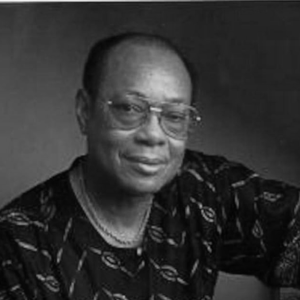
Monday Jul 08, 2024
Richard Wyands
Monday Jul 08, 2024
Monday Jul 08, 2024
Richard Wyands was one of the great heroes of modern jazz piano. An unassuming man who did not seek much publicity, he was a vital force in our jazz community. Wyands was a sparkling pianist of elegance and grace, with great swing and command. He contributed his talents to many jazz groups throughout the years.Richard Wyands was born in Oakland, California on July 2, 1928. He exhibited prodigy-like talent as a child and took [mainly] classical music lessons. When as an 11-year old he saw Count Basie perform at the World’s Fair on Treasure Island, he was hooked on jazz, and as a teenager he and his friends were influenced also by Duke Ellington’s appearances in San Francisco. At age 16 he formed a group that Jo Jones arranged to perform in Officer’s Clubs for servicemen in the Pacific theater. After graduating college at San Francisco State, he became a notable jazz figure in the Bay Area in the 1950's and for many years was the house pianist at the leading San Francisco nightclub, the Blackhawk.After lengthy tours of North America, first as Ella Fitzgerald’s accompanist, and then backing Carmen McRae, eventually Wyands moved to New York City in 1959. He established significant credentials associating with Charles Mingus, and in Gigi Gryce’s working groups. By the early 1960's, he served in effect as the standing recording pianist for Prestige Records, appearing on seminal albums with the likes of Roy Haynes (“Just Us”), Eric Dolphy, Oliver Nelson (“Straight Ahead”), and Etta Jones (“Don’t Go To Strangers”).In the late 1960's and 1970's Wyands had a long and fruitful association with guitarist Kenny Burrell. Wyands also worked frequently at the West End Café in the jazz revival of the late 1970's, and, with George Kelly, played in the movie “Moscow On The Hudson”.For many decades thereafter, Wyands was a leading figure on the New York scene in nightclubs and concerts. He appeared on many stellar records with Harold Ashby, Houston Person, Jimmy Cobb, and Etta Jones’s later oeuvre, to name a few. More significantly, he eventually was able to record a good number of piano trio records as a leader.Richard Wyands died of natural causes on September 25, 2019 at the age of 91.
originally broadcast March 20, 2022
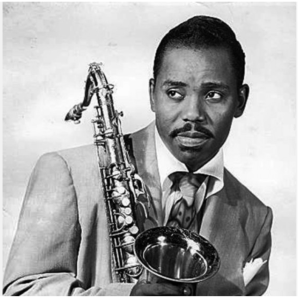
Monday Jul 08, 2024
Willis "Gator Tail" Jackson
Monday Jul 08, 2024
Monday Jul 08, 2024
Willis Jackson was among the notable cadre of exciting, young, Florida musicians who came of age in the post World War II bebop years. He got his first major professional break in the Cootie Williams orchestra, with whom he scored his first big record "Gator Tail" in 1949. Jackson then plied his trade in the rhythm and blues field and married the great singer Ruth Brown, and his sax strongly backs Brown on her early recordings such as "5-10-15 Hours".
After breaking up with Brown, Jackson made his name for many years in the organ-tenor sax groups with the likes of Jack McDuff, Thereafter, in the classic jazz revival of the 1970's he played strong mainstream jazz in many venues. He suffered from poor health and died in 1987 at an early age.
originally broadcast in 2012
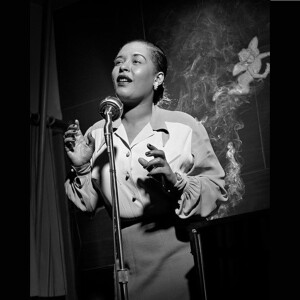
Monday Jul 08, 2024
Billie Holiday 1
Monday Jul 08, 2024
Monday Jul 08, 2024
From the 2024 edition of WKCR's annual Billie Holiday special, my shift contains a variety of material, including a segment comparing Billie Holiday's classic small group recordings of the 1930's revisited in Norman Granz productions of the 1950's with Ben Webster, Sweets Edison and others.
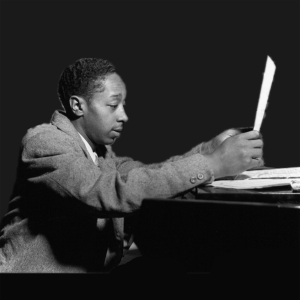
Friday Jul 05, 2024
Elmo Hope
Friday Jul 05, 2024
Friday Jul 05, 2024
Born in 1923 and coming of age in the bebop and hard bop years, as a youth Elmo Hope was friendly with Bud Powell and Thelonious Monk. Hope was a creative pianist and inventive composer. He possessed the fleet linear attributes and innovations of bebop. However, more significant was his compositional outlook, angular and dissonant in the mode of Herbie Nichols or his close friend Monk, yet with a romanticism that tempered the sometimes harshness of that style and stamped his true individualism. He lived on Lyman Place in the Bronx and nourished the African-American musical community of the borough. Hope was denied widespread opportunities during his playing days, died young in 1967, and is often overlooked in the jazz history canon.The program will explore his many compositions, as performed in piano-led dates, and we will also highlight notable appearances on classic recordings with the likes of Clifford Brown, Lou Donaldson, Sonny Rollins, Harold Land, Frank Foster, and John Coltrane.
originally broadcast July 23, 2023

